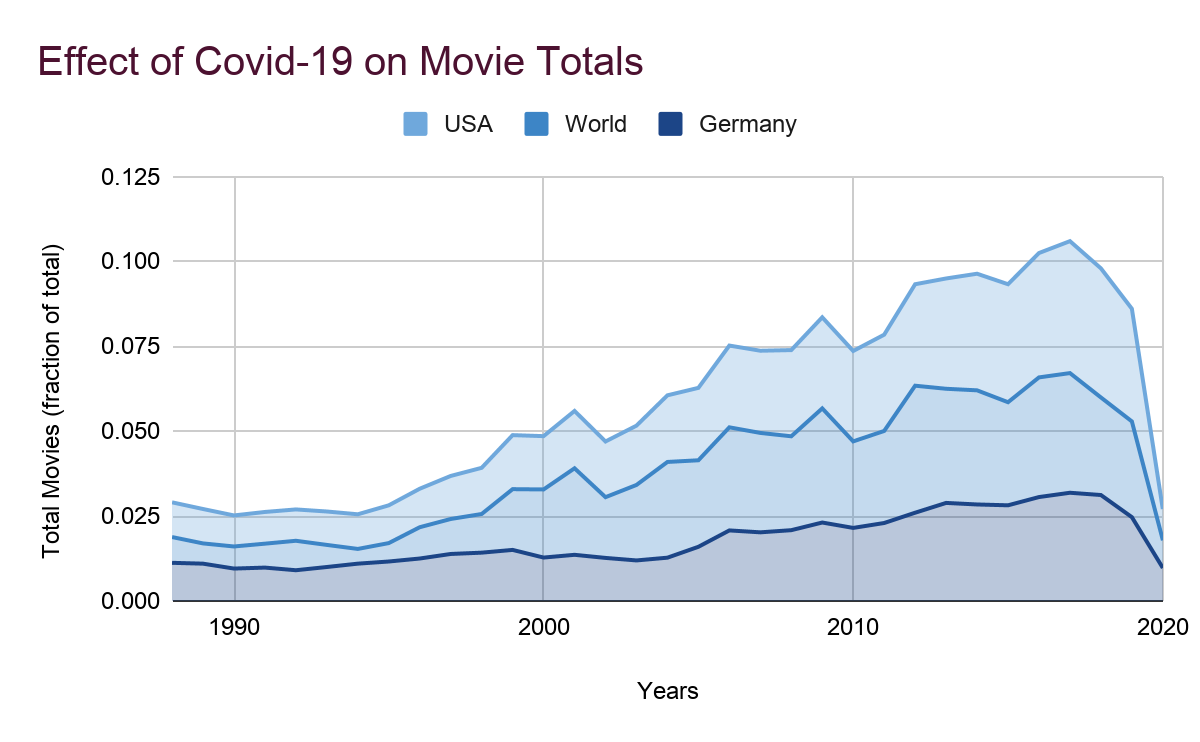A Guide to Understanding Movie Profits for the Future of the Human Economy
Explore the future of the human economy through movie profits. Discover the potential of Future Movie Profits Economy .

The Economic Impact of the Film Industry Worldwide
The global film industry has evolved over the years to become a significant player in the world economy. Beyond entertainment, movies have a profound impact on various sectors, contributing to?economic growth?and job creation on a global scale. In this article, we will explore how movies contribute to the global economy, delving into the intricate web of production, distribution, and consumption that sustains this multi-billion dollar industry.
Job Creation
One of the most direct ways in which the?film industry?contributes to the global economy is through job creation. The process of making a movie involves a multitude of skilled professionals, from actors and directors to cinematographers, set designers, makeup artists, and more. These individuals are employed both directly by film studios and indirectly through various support industries.
In Hollywood alone, the heart of the American film industry, the film sector supports hundreds of thousands of jobs. It is estimated that in 2020, the motion picture and video industry employed over 368,000 people in the United States, contributing significantly to the country's employment landscape.
Furthermore, the film industry is not confined to a single country. Production companies often hire local talent and crew members when shooting on location, stimulating job growth in various regions worldwide. This international collaboration creates a ripple effect, with jobs being generated in places far removed from the glitz and glamour of Hollywood.
Tourism
Movies often serve as an advertisement for their filming locations. Iconic scenes in movies can inspire travel destinations and draw tourists to places they may not have considered visiting otherwise. For instance, "The Lord of the Rings" series famously attracted tourists to New Zealand, where much of the trilogy was filmed.
In turn, increased tourism brings economic benefits to these areas. Tourists spend money on accommodation, transportation, dining, and local experiences. This influx of tourism can help rejuvenate struggling communities and foster growth in the hospitality and service sectors.
Merchandising and Licensing
Movies spawn an array of merchandise, from action figures to clothing lines and video games. These tie-in products generate substantial revenue for film studios and businesses involved in their production and distribution. The global popularity of franchises like Star Wars and Marvel has led to a merchandising frenzy, with products available in nearly every corner of the world.
Moreover, the licensing of movie characters and content for various purposes, such as advertising or branding, contributes significantly to the global economy. Iconic characters like Mickey Mouse and James Bond have become cultural symbols and generate substantial licensing revenue for their respective owners.
Streaming Platforms and Home Entertainment
The rise of streaming platforms like Netflix, Amazon Prime Video, and Disney+ has revolutionized the film industry. These platforms have expanded the reach of movies beyond traditional theaters, making content accessible to a global audience at the click of a button. As a result, the demand for content production has surged, leading to an increase in employment opportunities and investments in the industry.
Subscription fees and advertising revenue from?streaming platforms?have also become a significant source of income for filmmakers. Moreover, the emergence of smart TVs, smartphones, and high-speed internet has made home entertainment more immersive and accessible, further fueling the demand for quality content.
Film Festivals and Cultural Exchange
Film festivals, such as the Cannes Film Festival and Sundance Film Festival, play a crucial role in promoting cultural exchange and showcasing talent from around the world. These events attract industry professionals, investors, and film enthusiasts, fostering international collaborations and investments in the?global film market.
Additionally, foreign films gain exposure and distribution opportunities through film festivals, contributing to a diverse cinematic landscape. This cross-cultural exchange not only enriches the global film industry but also promotes understanding and appreciation of different cultures.
Infrastructure Development
The film industry often requires substantial investments in infrastructure, such as studios, post-production facilities, and specialized equipment. The construction and maintenance of these facilities create jobs and stimulate economic growth in the regions where they are located. Additionally, these facilities can attract foreign investments and collaborations, further bolstering the local economy.
Ancillary Industries
Beyond the core aspects of film production, numerous ancillary industries benefit from the film industry's global presence. These include catering services, transportation, costume and prop suppliers, visual effects companies, and more. These businesses provide essential support to the film production process and, in turn, thrive due to the industry's demands.
Economic Multipliers
The film industry's impact on the global economy extends beyond its direct contributions. It serves as a catalyst for various related industries, creating a multiplier effect. For example, a successful movie can lead to increased sales in related products and services, such as the fashion industry capitalizing on the costumes worn by popular movie characters.
Moreover, the film industry's economic impact is not limited to developed nations. Emerging economies are also benefiting from the growth of the global film industry. As these countries develop their own film sectors, they create new opportunities for local talent and stimulate economic growth. For example, the Nigerian film industry, often referred to as Nollywood, has become a significant contributor to Nigeria's economy and cultural identity, generating billions of dollars in revenue and creating numerous jobs.
In conclusion, movies make a substantial contribution to the global economy through job creation, tourism, merchandising, licensing, streaming platforms, cultural exchange, infrastructure development, and ancillary industries. The film industry's influence extends far beyond entertainment, with its economic impact being felt across diverse sectors and regions worldwide.
As technology continues to evolve and the demand for content grows, the film industry's role in the global economy is poised to expand further. With its ability to connect people, cultures, and markets, the film industry remains a powerful force that continues to shape our world economically and culturally.
What's Your Reaction?















